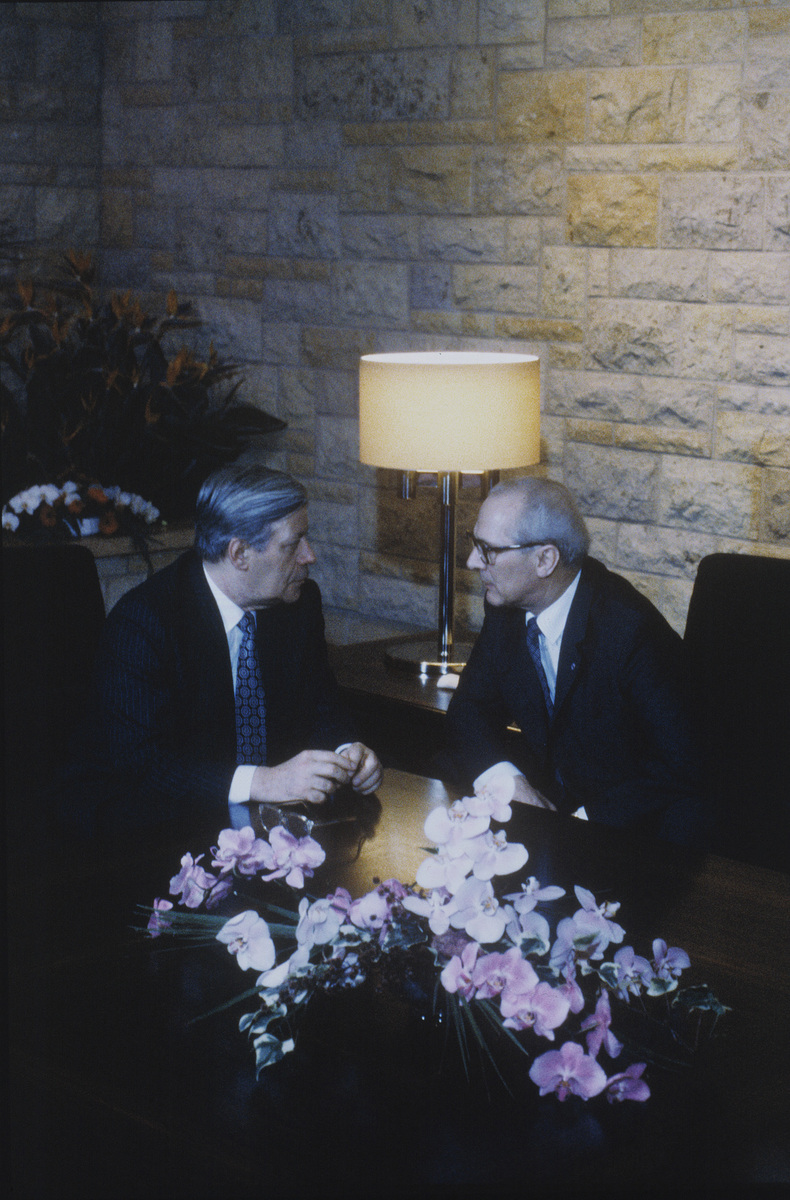Abstract
Relations between the two German states worsened on October 13, 1980, when the GDR government decided to increase the amount of foreign currency that visitors to the GDR from “non-socialist foreign countries” had to exchange for East German marks. (From that point on, visitors had to purchase 25 East German marks per day.) Additionally, in a speech delivered that same day, Erich Honecker put forth his so-called Gera Demands: as a precondition for the further development of German-German relations, he called for the recognition of GDR citizenship, the closure of the Central Registration Office for Political Crimes in Salzgitter, West Germany (this office documented political crimes in the GDR), the transformation of permanent representative missions into embassies, and the regulation of the Elbe River border. From December 11–13, 1981, Honecker (right) and Helmut Schmidt (left) met for working discussions at Schloss Hubertusstock on Lake Werbellin in Brandenburg (East Germany). There, Honecker’s Gera “demands” were toned down a bit, assuming a form perhaps better described as “wishes.” Although no further agreements were made at the meeting, it demonstrated that a German-German dialogue could still be maintained amidst the “Second Cold War.”
